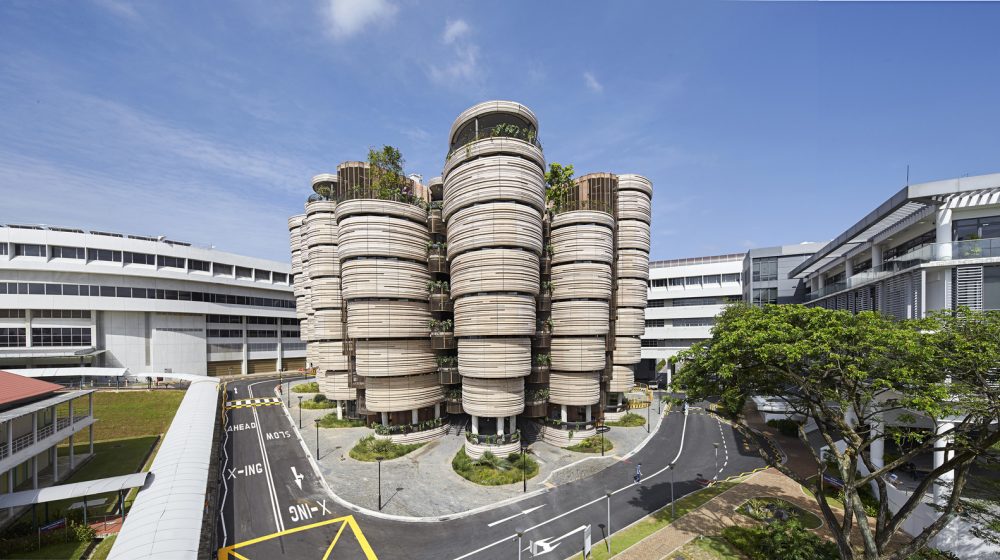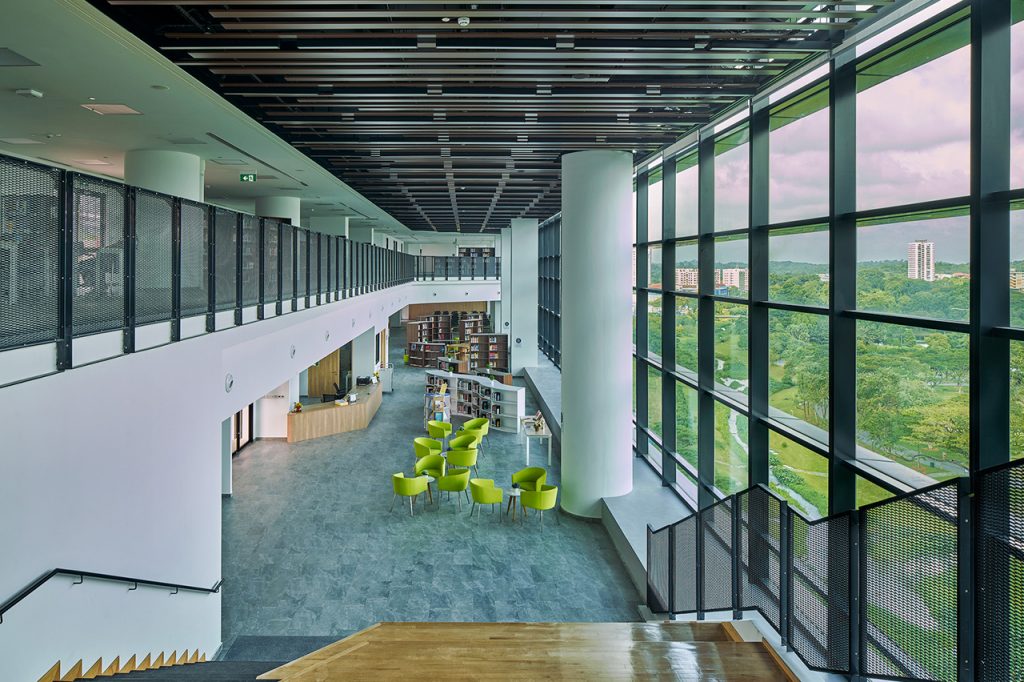Singapore is transforming its education system, focusing on cutting-edge technologies, creating enriched learning environments, and fostering collaboration with society and industry. The Ministry of Education (MOE) is actively introducing artificial intelligence (AI) into schools to enhance digital literacy and customize educational programs. A significant change is the increased emphasis on 21st-century competencies, including adaptive and inventive thinking, communication, and civic literacy.
To facilitate the improvement of educational environments, MOE allocates a substantial grant of approximately 64 million USD to schools. These funds enable schools to transform their educational and learning spaces, including converting ordinary areas into unique places like gardens and urban farms. Additionally, the ministry provides extra funding for the purchase of new furniture and equipment, enhancing the functionality of learning spaces.
![]()
Ms. Liew Wei Li, the Director-General of Education at MOE, emphasized, “To support schools, we need to provide them with opportunities to develop their educational programs. Students must have the opportunity to gain practical experience. This fund allows schools to redesign spaces to support their programs, providing a real-world context and flexible learning environments, enabling students to work in groups and develop key 21st-century competencies.”
These changes were announced at the MOE’s Schools Work Plan Seminar held at the Singapore Expo. The ministry will also provide teacher training to help them adapt to innovations through workshops, documentation, and other resources.

Photo: Learning Hub Hive, Hufton+Crow, Heatherwick Studio
MOE is also establishing a platform for schools to collaborate with industry and community organizations, offering students and educators broader opportunities and experiences. This includes partnerships with enterprises in sectors such as engineering, manufacturing, and research and development. In addition, workshops and lectures are provided by over 80 industrial partners.
An adaptive educational approach is actively being developed. For example, at Lakeside Primary School, students use AI-based technology to receive personalized recommendations based on their responses to questions. This system, known as the Adaptive Learning System (ALS), allows students to receive immediate feedback and adapt assignments to their level of understanding of the subject. Teachers note that this makes learning more engaging, as students no longer feel they are wasting time when they cannot solve a problem.
“In a traditional setting, if my ten questions are too difficult for the children, then it is a bit meaningless because the child cannot do the questions. But in this case, the child doesn’t waste his or her time as the system adapts to their readiness level,” said one of the teachers.
Such innovations contribute to more effective learning and allow students to plan their educational path more flexibly.

Photo: Eunoia Junior College (EJC)
The ministry is also working on developing programs to help students with spelling and grammar, as well as providing teachers with tools for feedback and assessment. All of these initiatives are part of MOE’s Transforming Education Through Technology (EdTech) Masterplan 2030, to make students more adaptive and creative.
Singapore’s Minister of Education, Chan Chun Sing, emphasized, “We believe that using technology will allow all of us to move forward together faster and further. Importantly, sharing good ideas will allow us to proliferate best practices and provide every student with the best educational resources during their time in school.”
The Ministry of Education also seeks to place a greater emphasis on improved communication and civic literacy, enabling students to better engage with society and play a more significant role in the country and the world. Ms. Liew highlighted, “Now that our kids are very good with using IT tools, the moment you teach them an application, they run with it and can apply it in so many different ways. That is what we hope to do – give them a context that enables them to practice the skills. Then, teachers observe, reflect, and provide feedback so they can continue to hone and enhance their skills. It’s not difficult for students to be motivated, especially when it’s a real-life context where they have to deal with an opportunity to interact with a segment of society; it is very enriching.” These measures enable Singapore’s modern education system to keep pace with the changing world, providing students with more adaptive and contemporary education that prepares them to successfully adapt to a rapidly changing world.
Cover Photo: Eunoia Junior College (EJC)
October 2023


